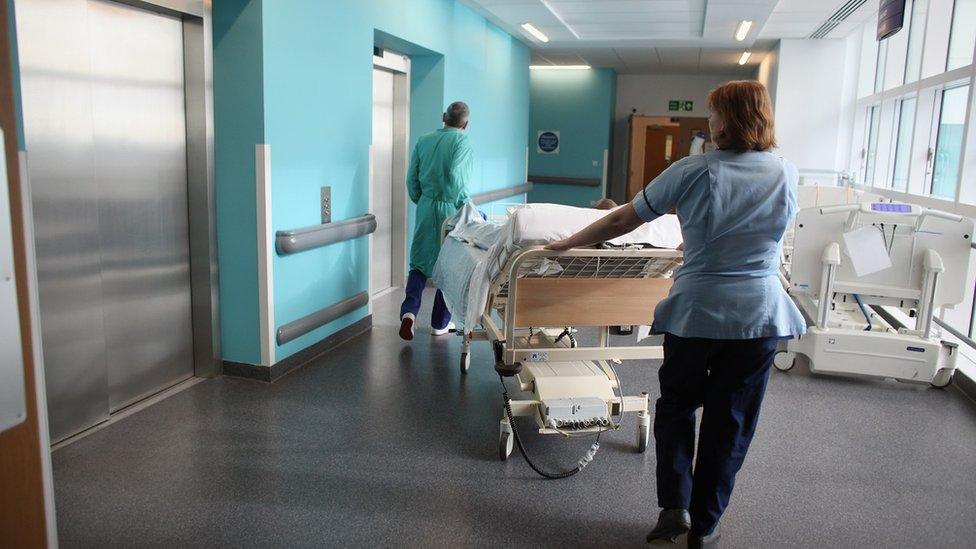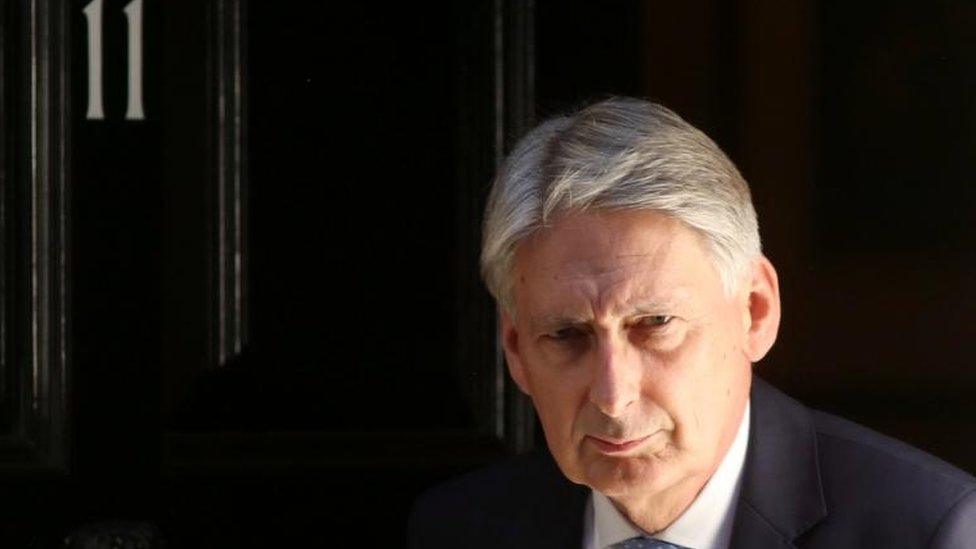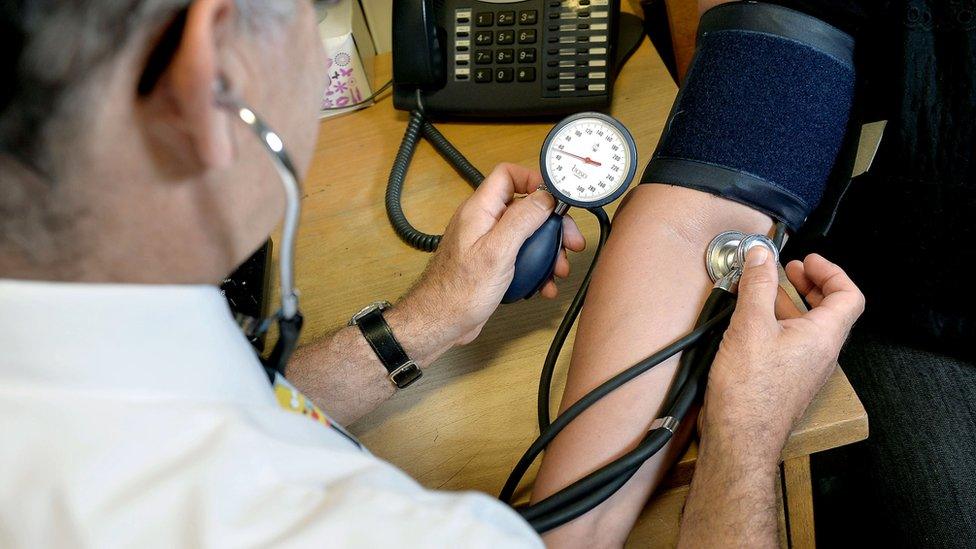Hammond’s £20bn NHS headache
- Published
- comments

"If it wasn't for Brexit," a senior Whitehall official said to me, "this is all we would be talking about".
The amount we spend on public services and the amount we pay in taxes has been pushed off the top of the political agenda by the noise and theatrics of Brexit.
But the fundamental challenge of paying for an as yet unfunded £20.5bn commitment to the NHS is becoming ever more clear.
Today's report by the government's own economic watchdog, the Office for Budget Responsibility (OBR), external, lays out the challenge of meeting that target by 2023 in stark detail.
Without fundamental change, the present trajectory of the public finances is "not sustainable", it says.
Add the NHS commitment to the additional pressures of an ageing population, and public debt relative to the size of the economy could rise to 283% by 2067 from a figure of just over 80% now.
Those are levels usually only seen in developed economies during periods of war.
And the interest payments on those debts would be gargantuan.
Robert Chote, the chairman of the OBR, said that given that outlook, the government was constrained in how much more it could borrow and maintain fiscal credibility.
And that higher taxes, or more spending cuts, were the leading options for policymakers.
He told me that though there might be a "Brexit dividend" because the UK will pay less to the European Union, that was outweighed by the negative impact leaving the EU was having on the economy.
"Brexit is likely to weaken the public finances overall," the OBR said.

Philip Hammond has been left to sort out the financing of the extra NHS spending
It was Number 10 which announced the "good news" of the health spending commitment.
And it is Number 11 that has been left with the headache.
Which taxes will be increased and by how much is now the big question.
The Treasury has made it clear - everything is on the table, from increases in fuel duty, to income tax changes to business tax changes.
But, and it is a significant one, once the government has made its decisions, could it push any tax-raising policies through a fractious Parliament?
And how will the public react to higher taxes, given that many millions of people have hardly seen their incomes rise since the financial crisis a decade ago?
This is the challenge the government - and more particularly the chancellor - faces.
How to pay for a better NHS.
How to fend off other claims for higher spending from, for example, the Home Office for extra police, or the Ministry of Defence for improvements to the UK's armed capabilities.
Answers - if only partial - will have to be found before the next Budget in November, just four short months away.
- Published17 July 2018
